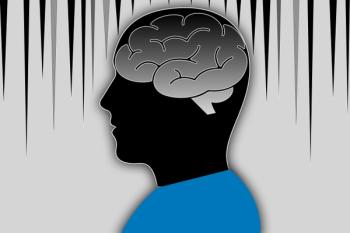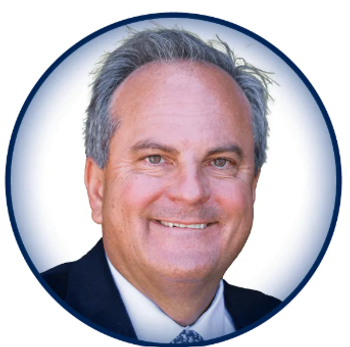
- Vol 38, Issue 5
- Volume 05
A Pioneer of Psychosomatic Medicine
Key Takeaways
- Helen Flanders Dunbar’s multidisciplinary training and leadership roles established psychosomatic medicine’s early institutional infrastructure, including founding influence on the American Psychosomatic Society and editorship of *Psychosomatic Medicine*.
- Her clinical-research program emphasized psychodynamic mechanisms whereby repressed affect was theorized to produce organ-specific somatic dysfunction, motivating syndrome-based psychological profiling and claims of psychogenic disease origins.
Widely recognized as the prime mover behind the psychosomatic medicine movement, Helen Flanders Dunbar, MD, PhD. was a clinician, writer, and founder of the American Psychosomatic Society.
Looking Back to Look Forward
Series Editor Gregory Eghigian, PhD
THIS DAY IN HISTORY
The history of psychiatry does not lack for great names. One of the greatest must be Helen Flanders Dunbar, MD, PhD. Widely recognized as the prime mover behind the psychosomatic medicine movement, she was a clinician, writer, the inaugural editor of Psychosomatic Medicine, and
Born May 14, 1902,
Her Episcopalian faith was a guiding light in her life, and she believed it should inform her medical practice. Dunbar worked closely with Anton Boisen, a clergyman inpatient at Westboro Mental Hospital who was convinced that religion and psychiatry needed to be connected on a professional level. Together they trained ministers to work in medical settings.
In 1929, Dunbar broadened her medical and spiritual horizons by traveling to Europe. She met the day’s leading figures in psychiatry and visited Lourdes, the world’s most famous healing shrine in France. This visit had a profound spiritual effect.
She legally changed her name to Flanders Dunbar in 1938. It is disappointing that such an accomplished woman had to change her name to overcome the prevailing misogyny.
From 1930 to 1942, Dunbar was the medical director of the Council for Clinical Training of Theological Students and director of the Joint Committee on Religion and Medicine. During this time, she earned the sobriquet of “mother of holistic medicine” with her 1935 publication of Emotions and Bodily Changes: A Survey of Literature on Psychosomatic Interrelationships: 1910-1933. In 1939, she became the first editor of the journal Psychosomatic Medicine.
American psychosomatic medicine was born in the 1930s. According to this school of thought, illnesses arose from the physiological effects of emotional stimuli. It was thought that certain psychodynamic patterns created typical illnesses, known as organ specificity. Repressed (and forgotten) emotions emerged from the unconscious to target certain organs, producing psychosomatic disorders. Somatic dysfunctions thus arose from patients’ emotional problems, which led practitioners of psychosomatic medicine to search for psychological profiles characteristic of specific syndromes. This expanded further to the belief that many diseases were psychogenic in origin and stressors, albeit undefined. Dunbar believed that having accidents was similar to the process by which other patients transformed psychological conflicts into somatic symptoms. Their personality styles and neuroses translated into accident proneness.3
After 1939, Dunbar gave up academic commitments, drank heavily, alienated followers, and left the American Psychosomatic Society. On August 22, 1959, the publication day of her landmark book Psychiatry in the Medical Specialties,4 she drowned in her swimming pool.
Marcia Dunbar Soule, Dunbar’s daughter, referred to her mother as “a magnetic, charismatic woman with a disturbed and beautiful soul and an almost magical gift of insight and intuition.”5,6 It is difficult to put it any better, only to reflect that the passage of time may vindicate more of the views Dunbar held.
Dr Kaplan is clinical associate professor at the Graduate School of Medicine, University of Wollongong, Australia, and research fellow in the history department of Stellenbosch University, South Africa. He wrote about syphilis in the book The Exceptional Brain and How It Changed the World, and is currently writing a biography of Helen Flanders Dunbar.
References
1. Ozarin L. A psychiatric pioneer remembered. Psychiatr News. March 3, 2006. Accessed April 5, 2021.
2. Kemp HV. Helen Flanders Dunbar (1902-1959). American Psychological Association Society for the Psychology of Women. 2010. Accessed February 16, 2021.
3. Powell RC. Emotionally, soulfully, spiritually ‘free to think and act’: the Helen Flanders Dunbar (1902–59) memorial lecture on psychosomatic medicine and pastoral care. Journal of Religion and Health. 2001;40:97-114.
4. Rawson, AJ. Accident proneness. Psychosomatic Medicine. 1944;6(1):88-94.
5. Dunbar HF, Wolfe TP, Rioch JM. Psychiatric aspects of medical problems: the psychic component of the disease process (including convalescence), in cardiac, diabetic, and fracture patients. Am J Psychiatry. 1936;93(3):649-679.
6. Dunbar HF, Wolfe TP, Tauber ES, Brush AL, Coffin M. The psychic component of the disease process (including convalescence), in cardiac, diabetic, and fracture patients. Part II. Am J Psychiatry. 1939;95(6):1319-1342.❒
Articles in this issue
over 4 years ago
On Becoming a PMHNPover 4 years ago
Partnering for the Greater Goodover 4 years ago
Reflecting on Psychiatry’s Role in Religionover 4 years ago
Special Considerations for SGM Youth Onlineover 4 years ago
What Constitutes an SGM Community?over 4 years ago
The Mental Health of SGM Youth: Embracing Affirmationover 4 years ago
Medical Liability Costs Are on the Riseover 4 years ago
Tips for Lithium Dosing for Optimal Renal SafetyNewsletter
Receive trusted psychiatric news, expert analysis, and clinical insights — subscribe today to support your practice and your patients.







